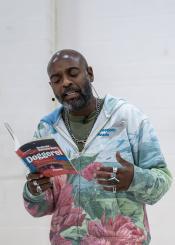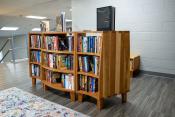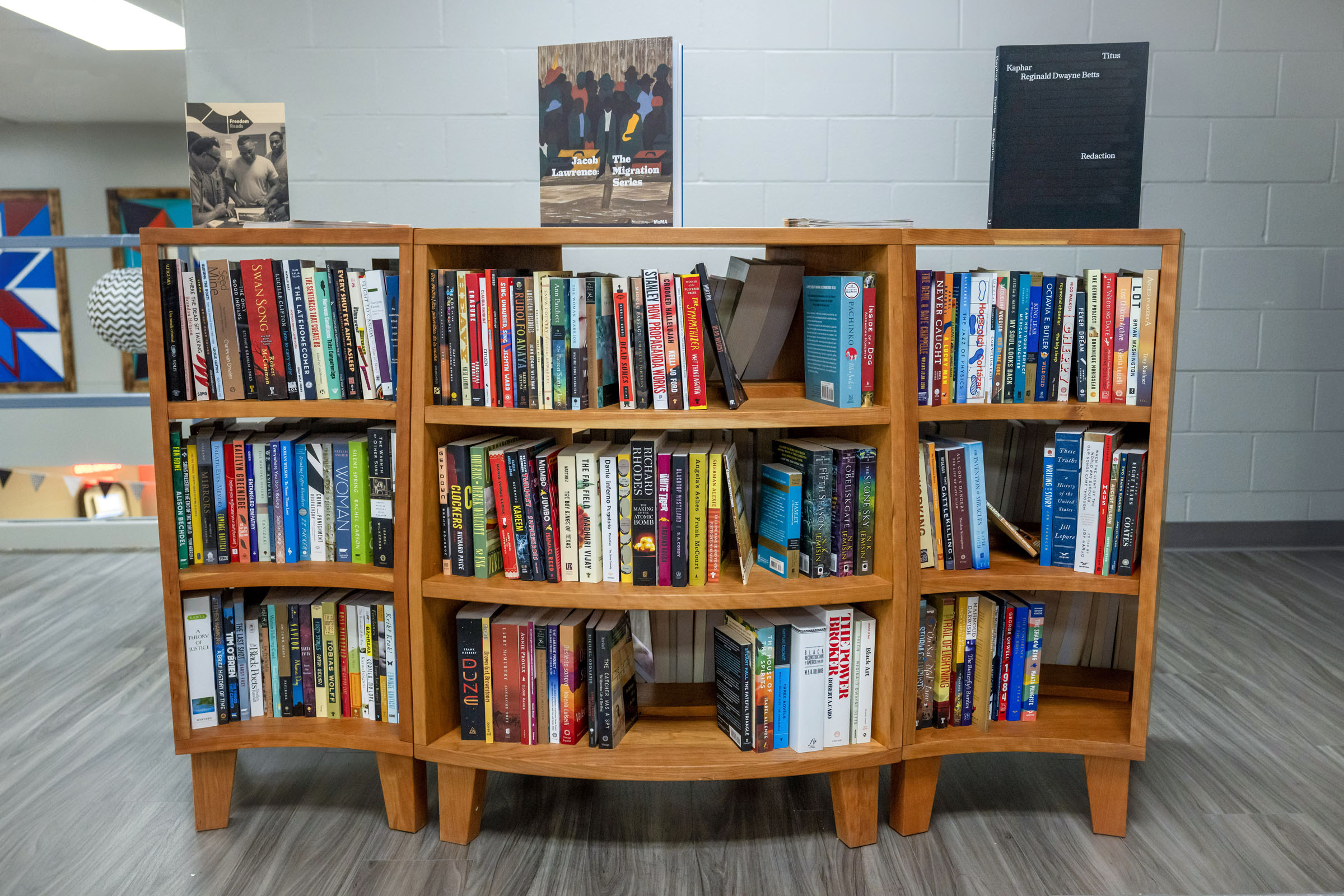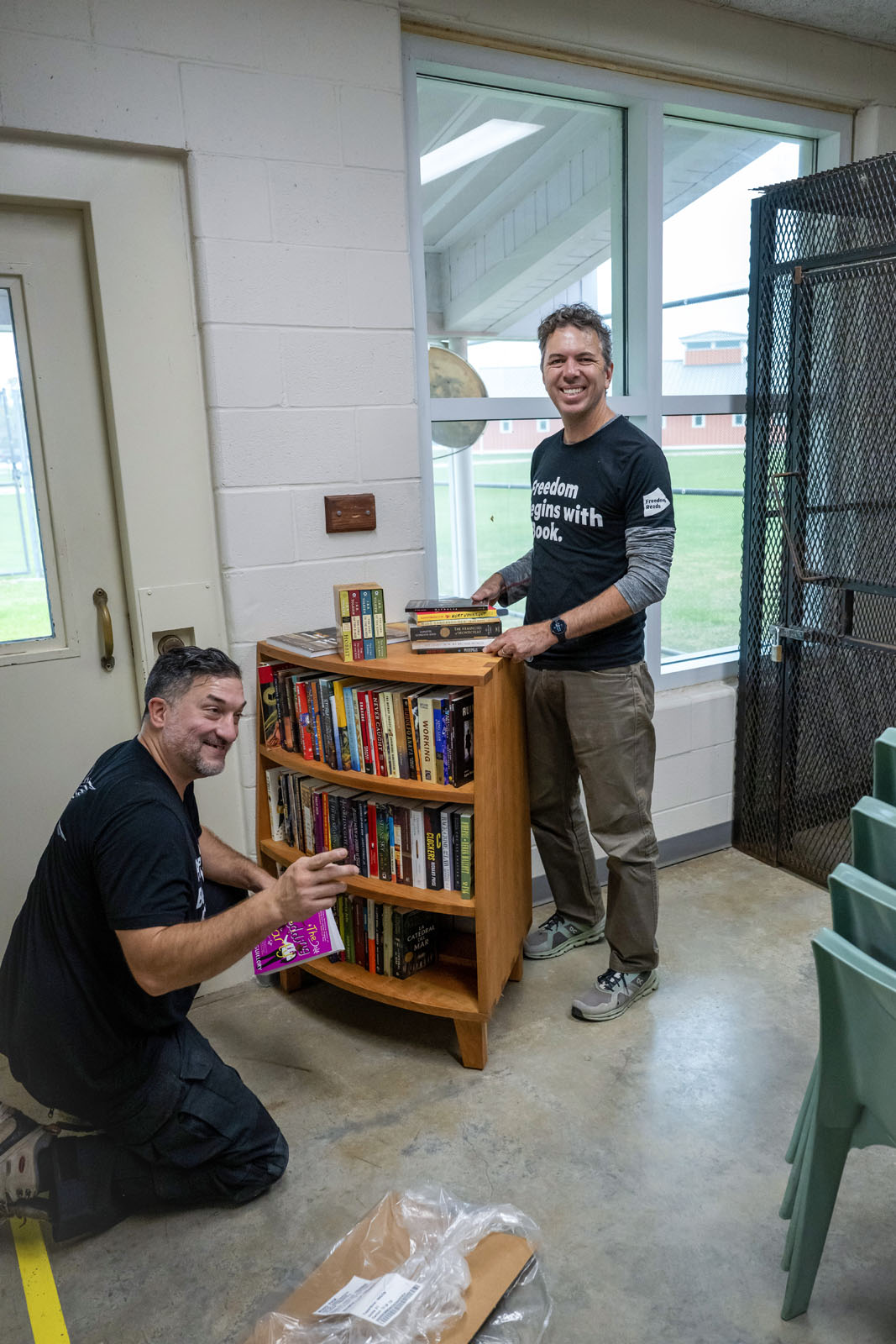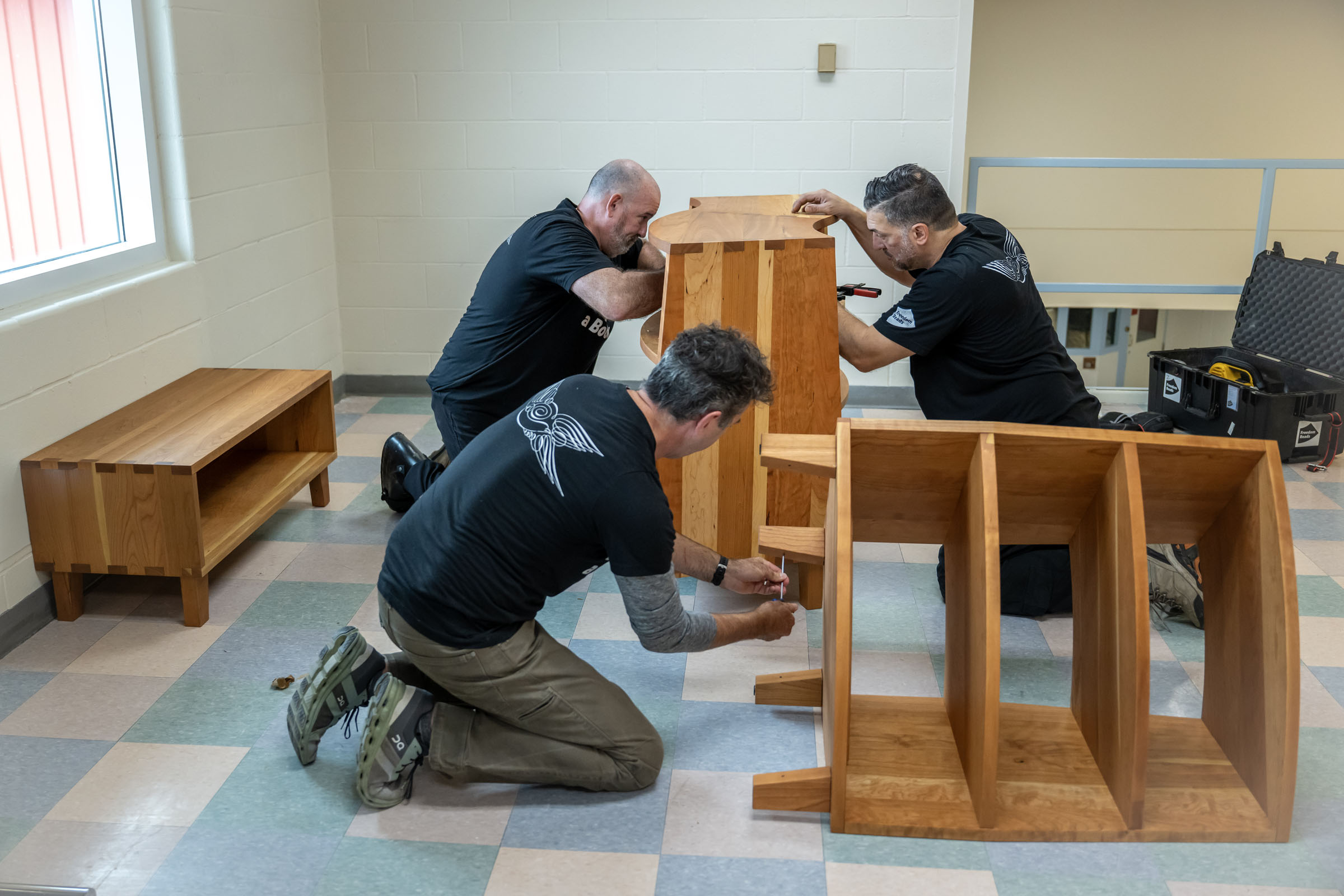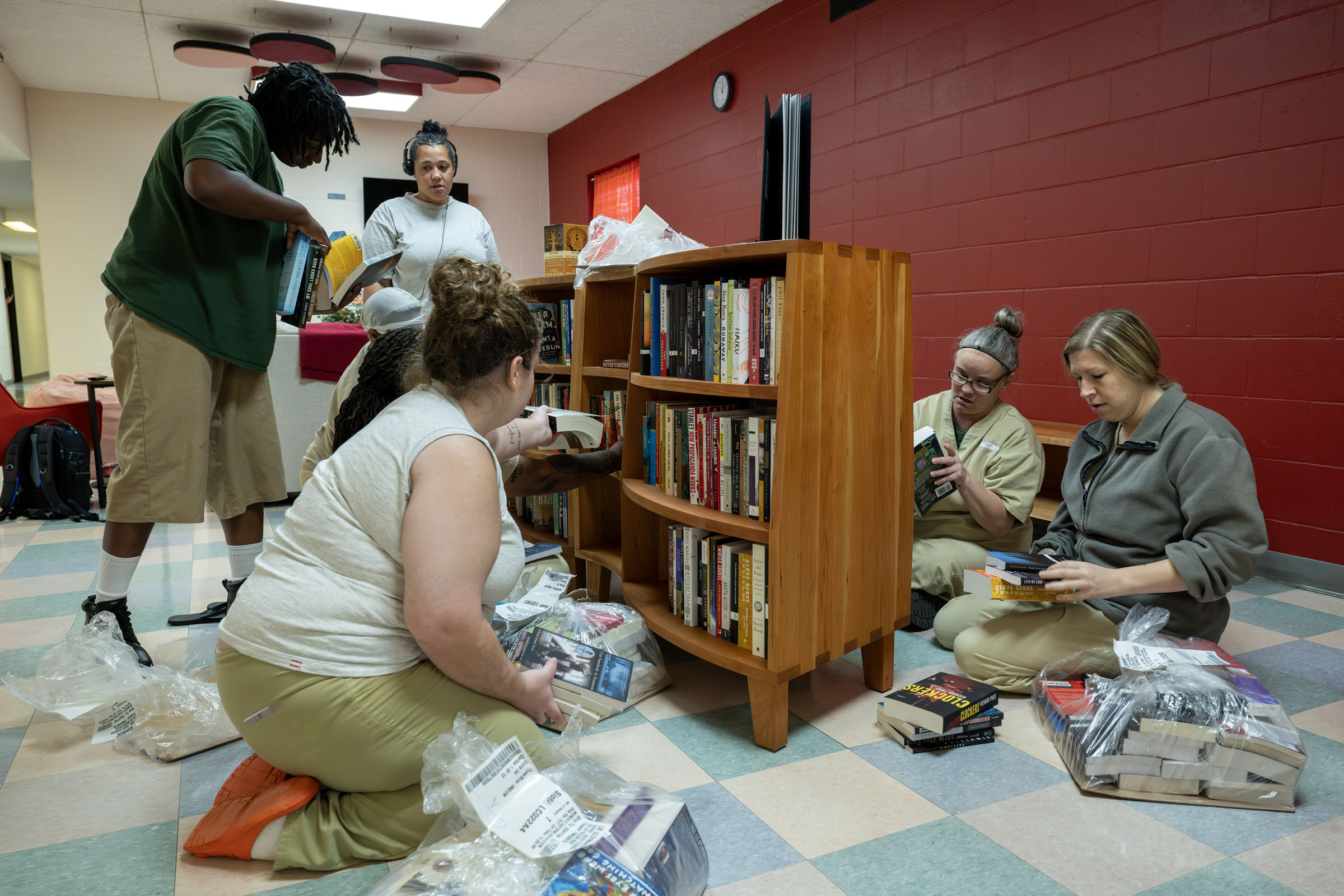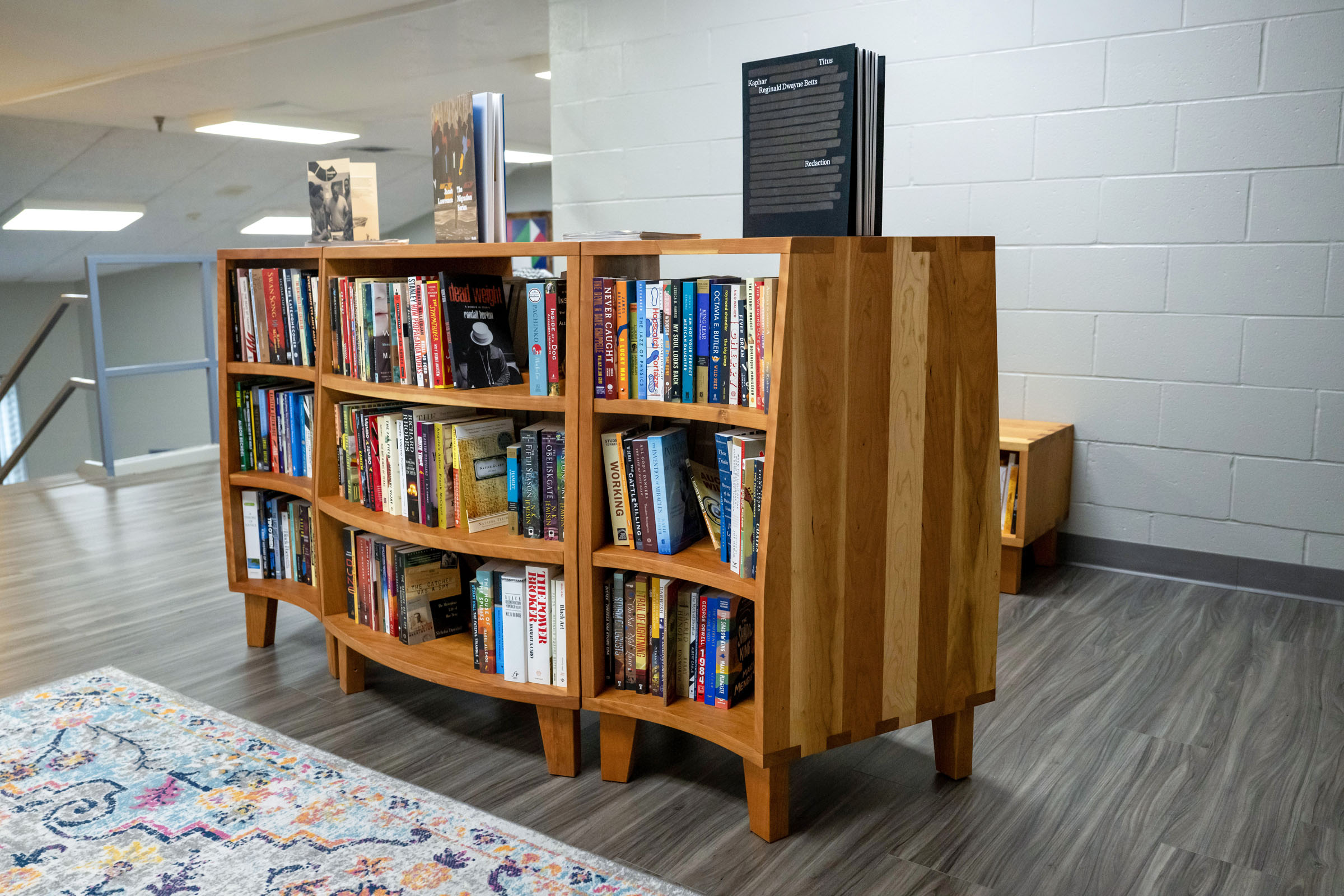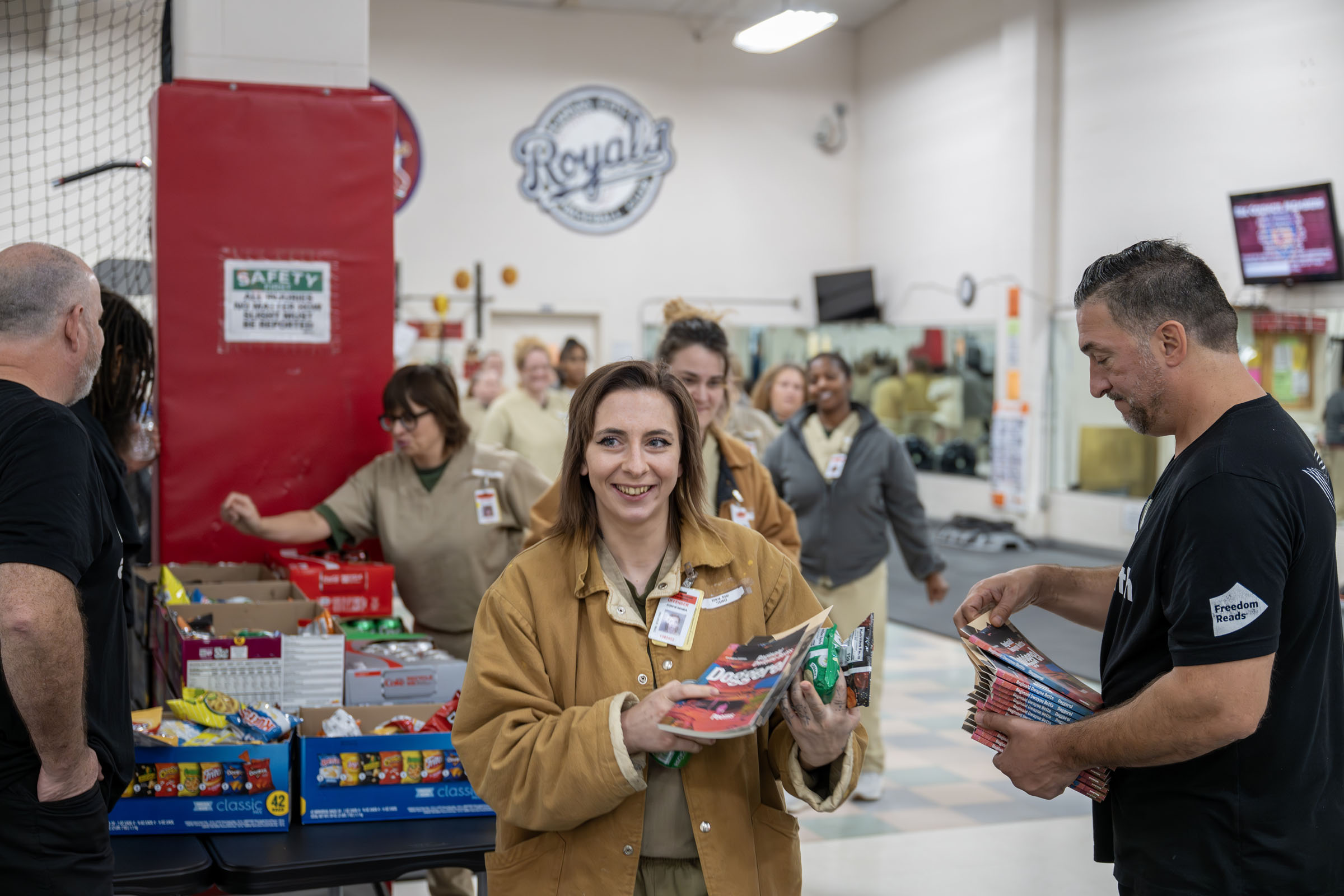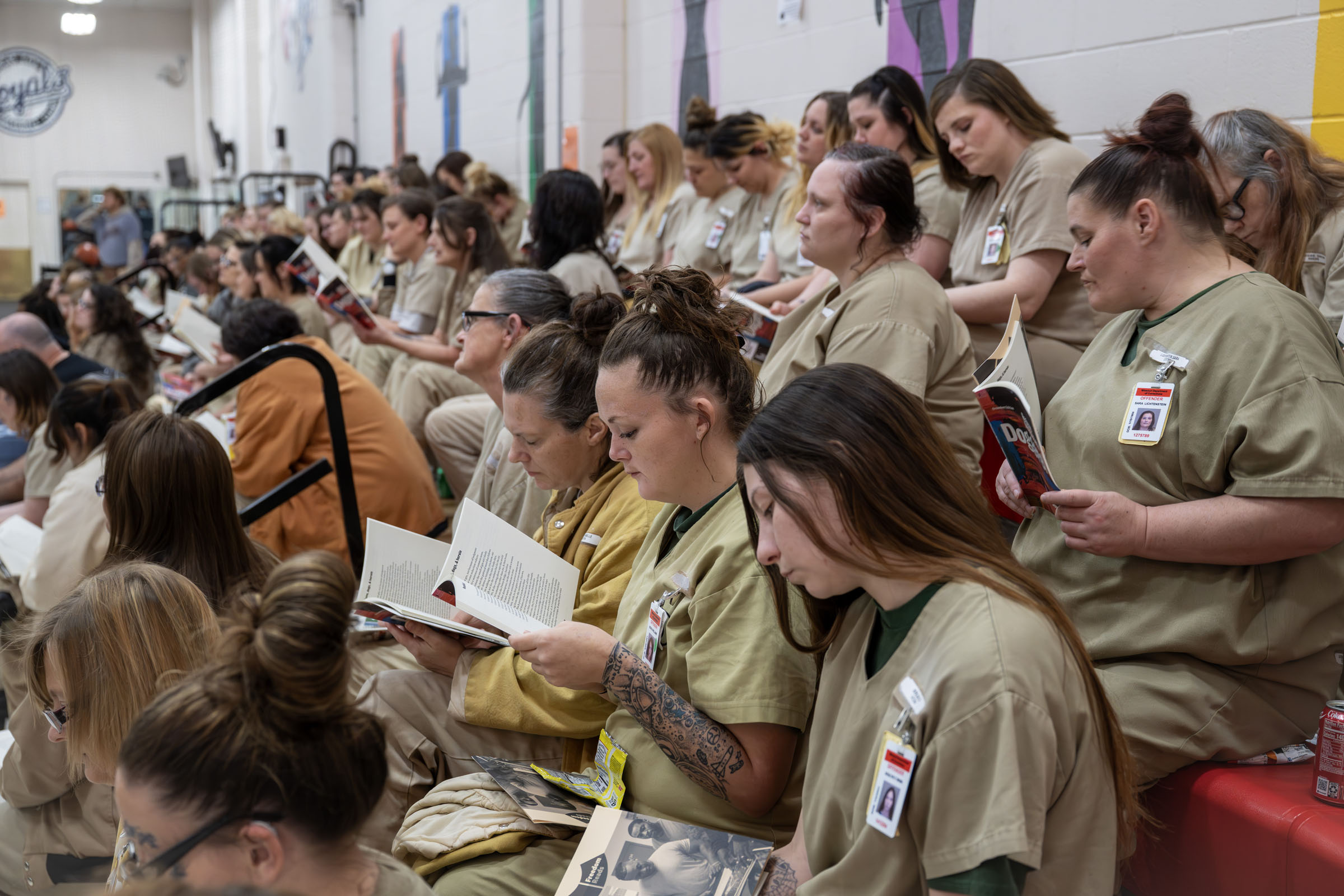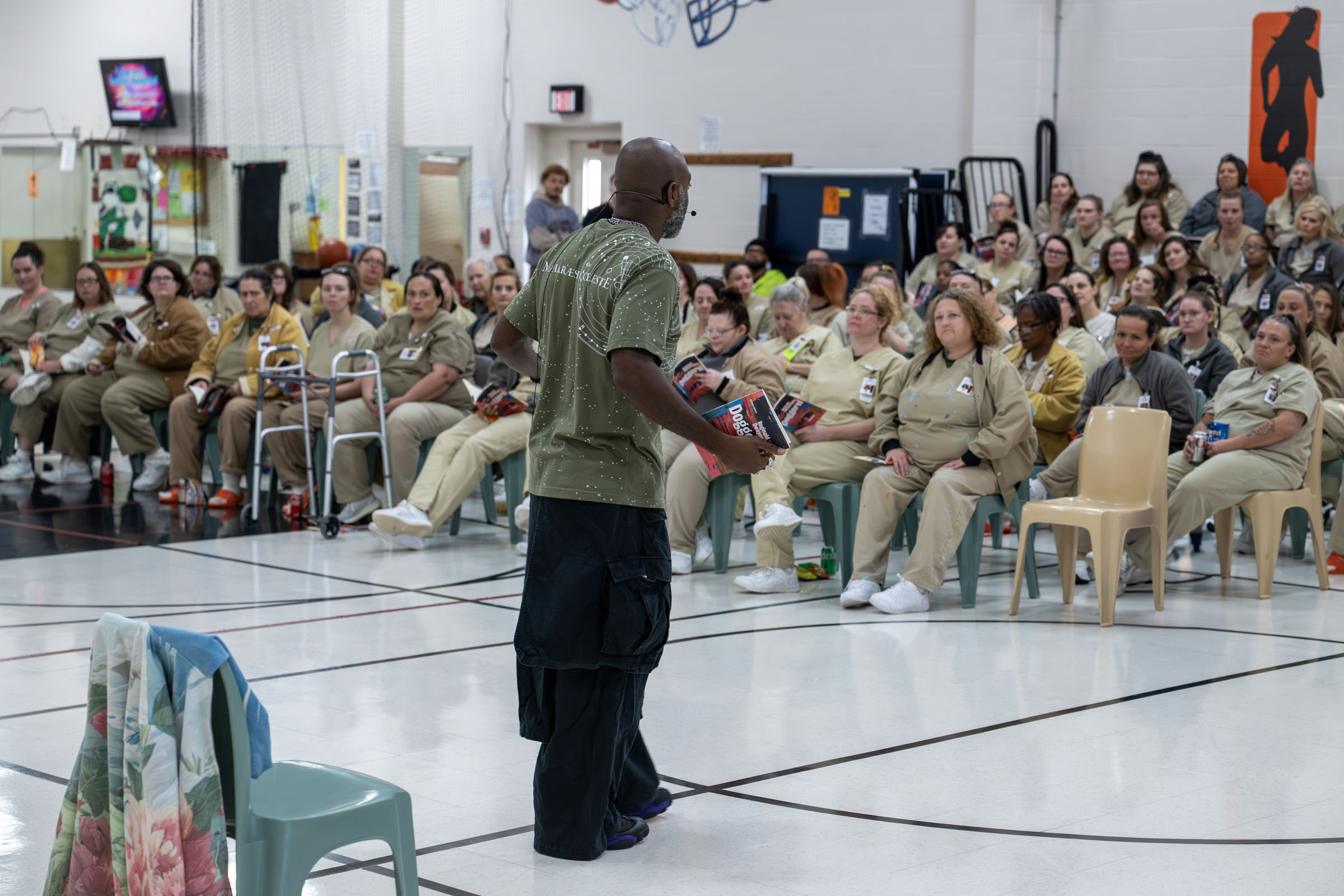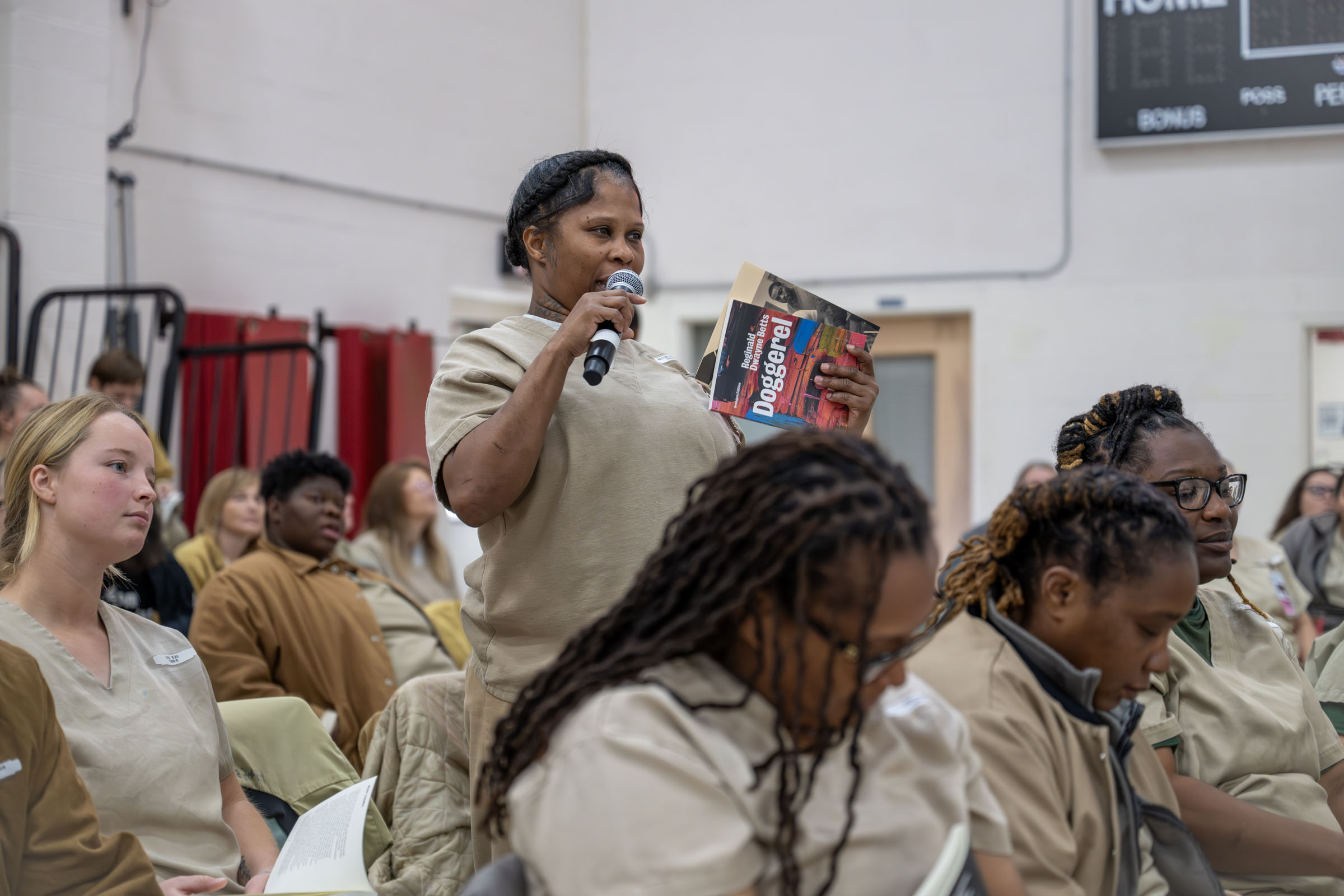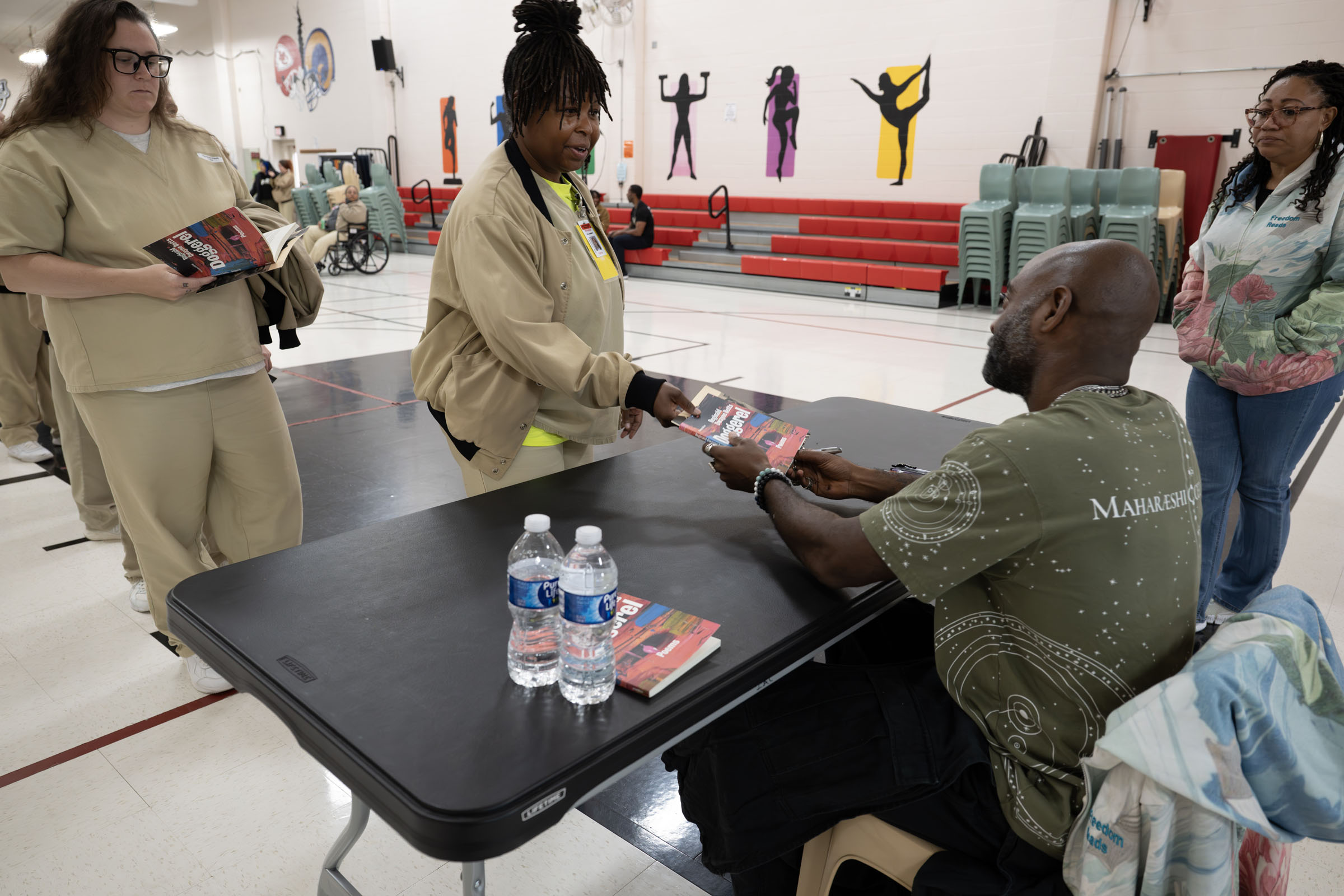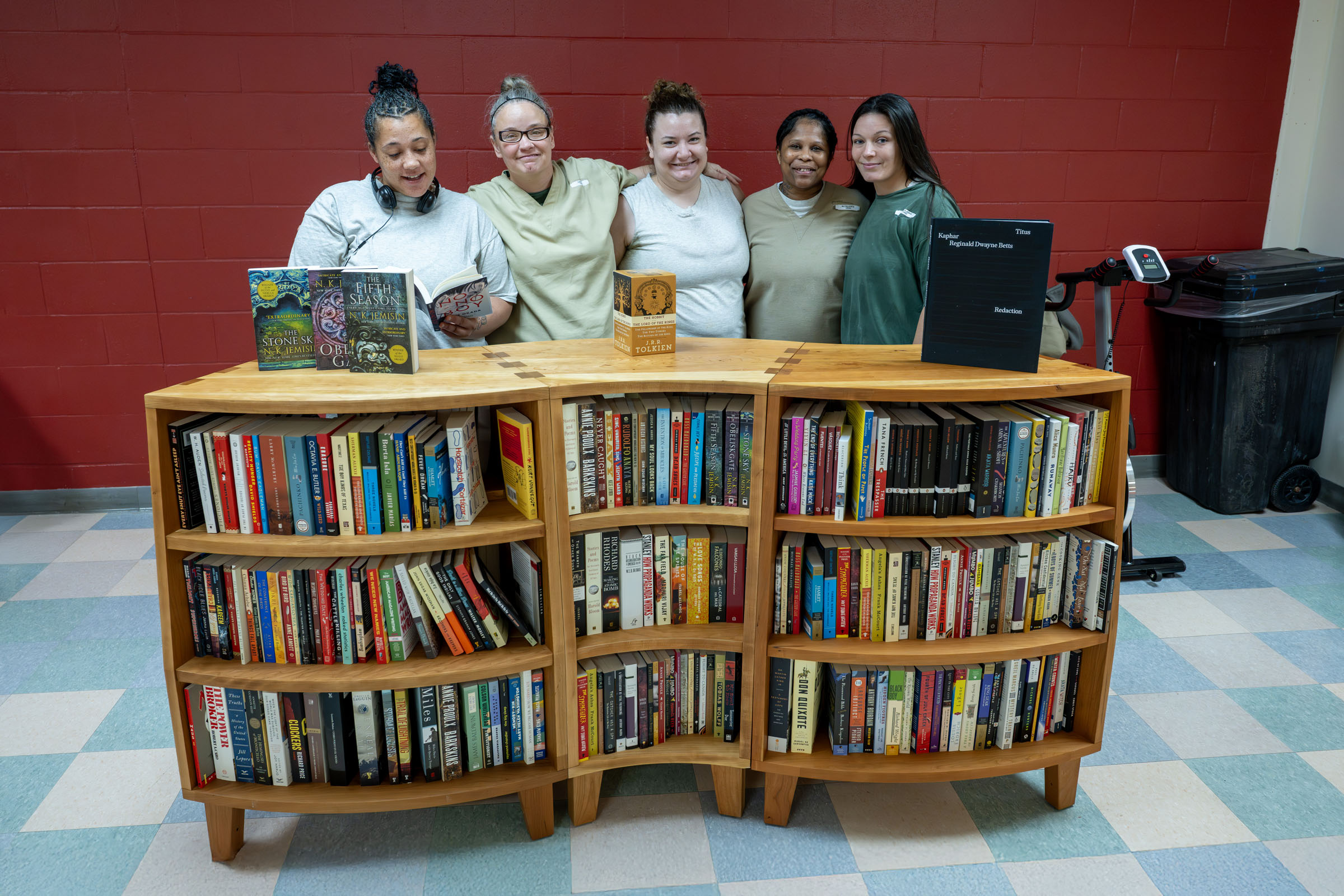Poet Reginald Dwayne Betts discovered a new path through reading while incarcerated. Now his nonprofit Freedom Reads inspires hope by bringing books to prisons nationwide.
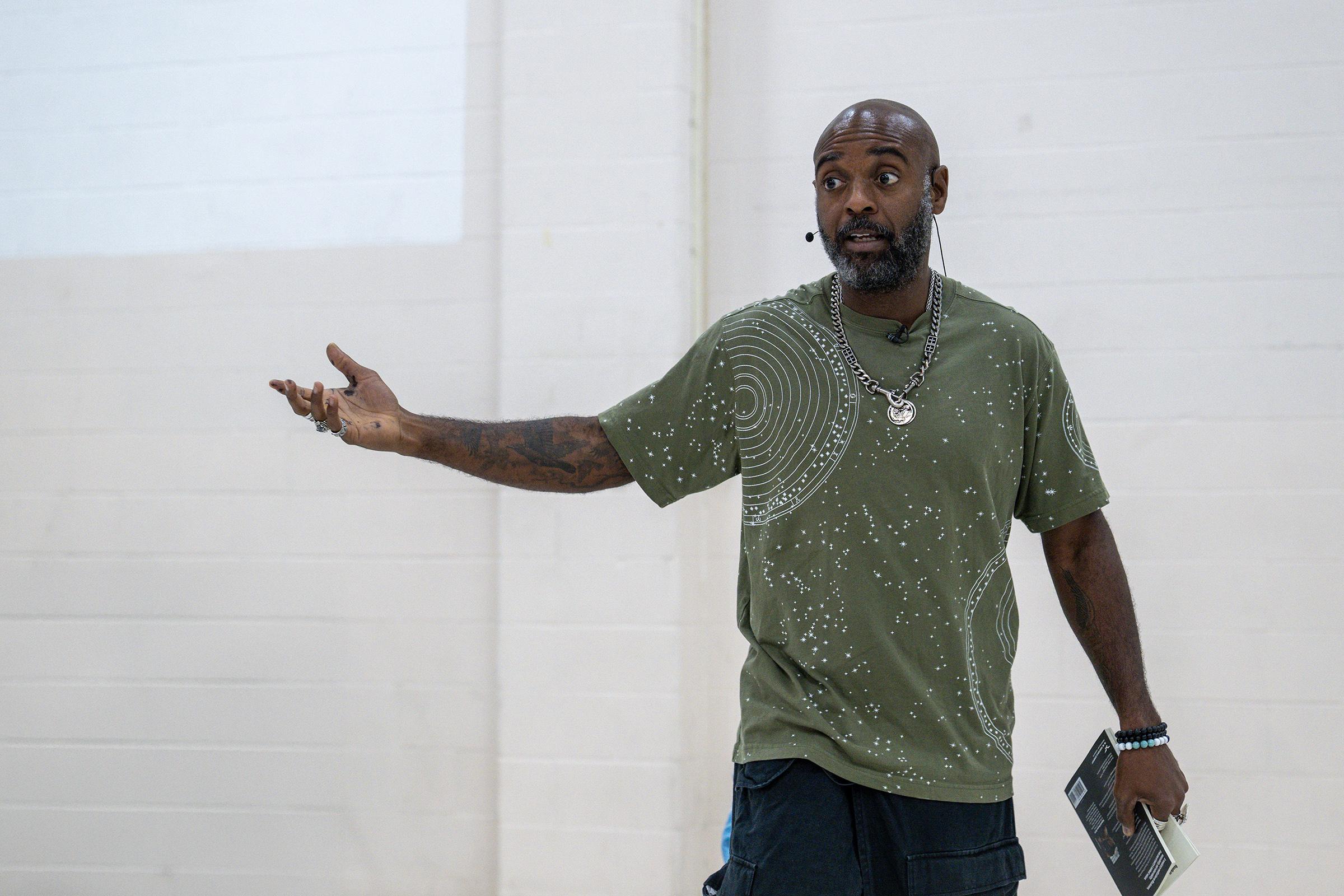
Story by Marcus Wilkins. Photos by Garry Brix.
As with any artist, Reginald Dwayne Betts pours his past — the tears, joys, battles, friendships, mistakes, passions, griefs — into his creations. The author of six books, Betts used literature to propel himself from a 1997 carjacking prison sentence in Virginia to a writing career and a law degree from Yale University. It’s a story of redemption, one of many themes he grapples with in his latest collection of poetry, Doggerel.
“… every story becomes a multiplication,
If the naming is filled less with names than
With the best parts, the barking & everything
Else, because who among us hasn’t been
As mangy as a rescue, even on our best
Days, desiring mostly to be loved.” — from “Rings”
Betts’s journey inspired him to found Freedom Reads, an organization committed to bringing bookcases filled with paperbacks into U.S. prisons. The poem was one of several he read aloud Oct. 28 at Women’s Eastern Reception, Diagnostic and Correctional Center (WERDCC) — the 521st institution where the nonprofit has installed their libraries.
“All the women here will recognize what it means to weep in front of their parents, or weep for their children, or see their children weep,” Betts said. “Having poems that touch on this lets us have a conversation about what it means to be alive and not be so overwhelmed with the shame that comes with having done something to get yourself in prison.”
Every Missouri Department of Corrections (MODOC) institution has a library, which collectively house 197,000 books. But those libraries aren’t open 24/7, whereas the Freedom Reads libraries are available anytime.
Handcrafted out of walnut, maple, oak and cherry, the two-sided shelves are elegantly curved and paired with a reading bench to encourage community and conversation. Everything about the physical design — scale, shape, materials, weight and placement — is intentionally chosen so the furniture becomes a gathering place in the middle of a cellblock, not something leaned against a wall.
The Freedom Reads crew also installed shelves at Fulton Reception and Diagnostic Center (FRDC) earlier that day.
“I cry about everything, but I cried when I saw the shelves and all the books on them,” said Taryn Carroll, WERDCC resident. “To know that every one of the 500 books is a book that someone who was incarcerated read and it changed their life in some way — and now I get to read it. That’s wonderful.”
Among former MODOC residents who find success after incarceration, access to books on the inside is often a common denominator. In addition to education, books provide a mental escape, a means to consider new perspectives and a pathway to broaden one’s spiritual and intellectual horizons.
“I had already chosen the streets over school, and I didn’t reacquire my love for education and information until I got that 30-year sentence,” said Mataka Askari, a former Algoa Correctional Center resident and current instructor for Connections to Success, a post-incarceration advocacy program. “Reading about history made me curious about archaeology, which made me curious about anthropology, which made me curious about psychology, biology, astronomy, quantum physics and on and on. I never want to stop my pursuit of trying to understand everything.”
The Freedom Reads books are also available to MODOC staff, another deliberate choice made by Betts and his team.
“When I was inside, oftentimes it would be a CO who would see me reading and say, ‘Yo, this kid deserves a chance,’ or ‘Have you ever read this book?’” Betts said. “Working in prison is difficult. But at its best, it is the work of making people better.”
For Kathy Briggs, a WERDCC resident and new mother scheduled for release in early 2026, the library has given her another goal to pursue before she begins a new life with her twin daughters.
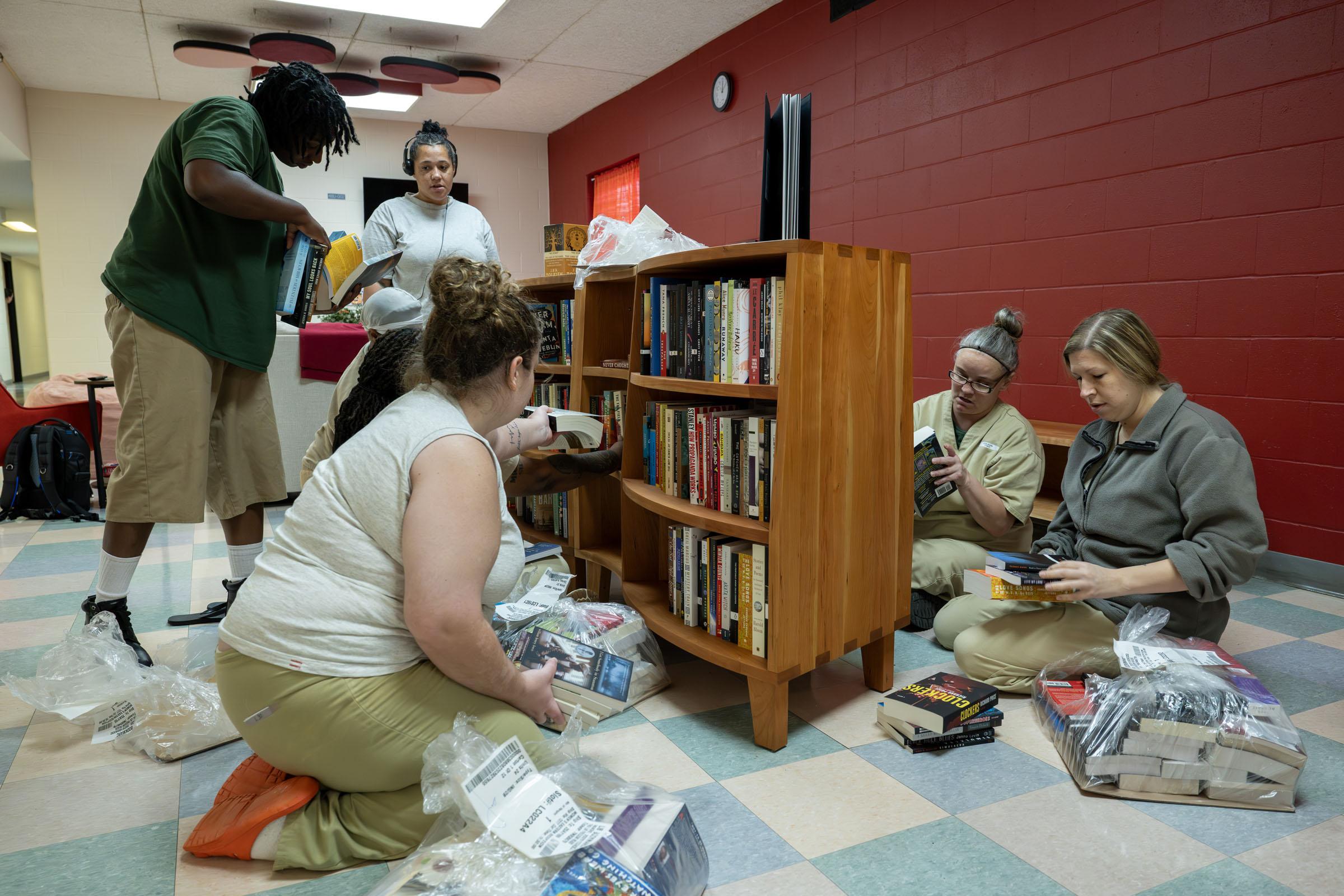
“I have been helping by inventorying the books and I’m like ‘Ooh, I want to read this one! And this one!’ I have a pretty good reading list to complete before I leave,” said Briggs, laughing. “And it’s weird but I love the smell of the new books. It’s almost like a new car.”

